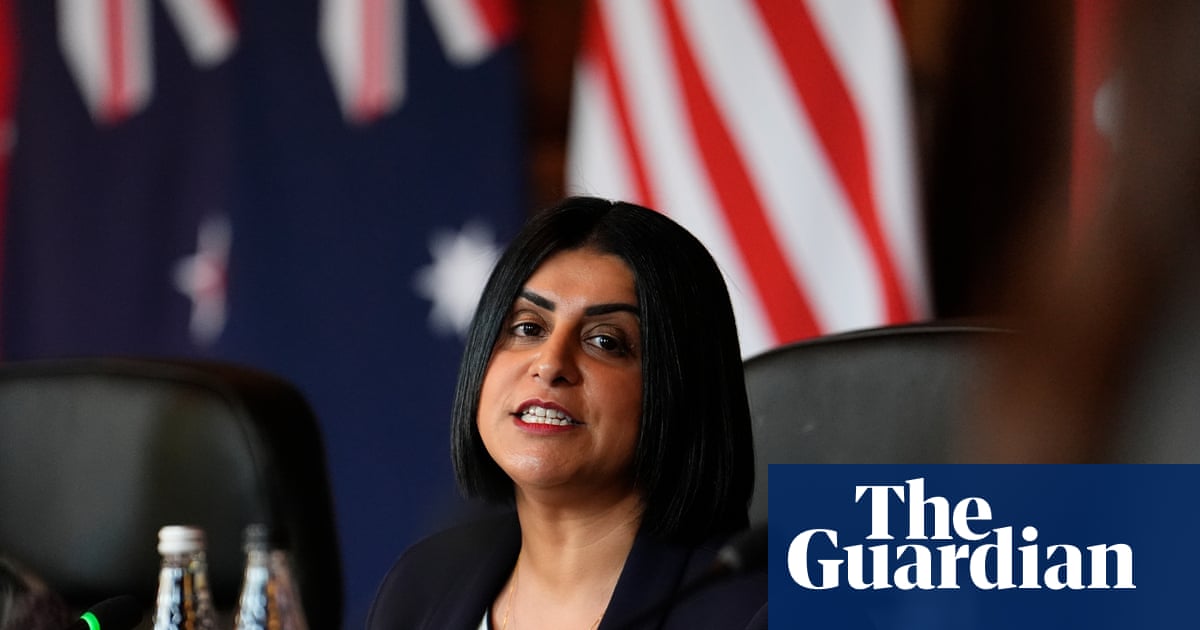Countries that refuse to take back rejected asylum seekers from the UK could face visa suspensions, Shabana Mahmood said on Monday, as she promised to move “further and faster” as home secretary.
Confirming that she hopes to take a harder line than her predecessor, Yvette Cooper, she said she would do “whatever it takes” to cut the number of people entering the UK by irregular routes such as small boats.
In a first announcement as home secretary, she proposed to cut the number of visas granted to countries that delay or refuse returns of their citizens who have no right to remain in the UK.
It was one of several proposals discussed with Britain’s closest allies at a meeting of the Five Eyes security partnership, which is made up of the UK, the US, Canada, Australia and New Zealand.
Mahmood said: “For us, that means including possibly the cutting of visas in the future.
“We do expect countries to play ball, play by the rules and if one of your citizens has no right to be in our country, you do need to take them back.”
Countries where returns of refused asylum seekers are low and demand for UK visas is high include India, Bangladesh, Pakistan and Nepal. In June, Keir Starmer said he wanted to take a more “transactional” approach to the UK’s use of visas.
Experts said the lack of detail released by the government meant that it was difficult to assess whether any visa restrictions might persuade countries to take back more rejected asylum seekers.
Madeleine Sumption, the director of the Migration Observatory at Oxford University, said: “We don’t currently know what sort of restrictions the government has in mind. In theory, it would involve entirely preventing citizens of certain countries from getting visit, work or study visas – the nuclear option – or smaller restrictions such as higher costs. This would affect the impacts both in the UK and on the negotiation.
“Governments around the world are likely to respond differently to the prospect of visa restrictions. Some countries to which the UK struggles to return refused asylum seekers do not receive many visas for their citizens anyway, and do not have well-functioning governments with the desire or capacity to negotiate – such as Somalia. They might not be particularly exercised by visa restrictions.
“However, there are quite a few countries where returns of refused asylum seekers are low and demand for UK visas is also high. How these countries would respond to threats to reduce visa access might depend how much they care about visa options for their citizens. This will vary, although some countries – such as India – have a long history of lobbying for visa access,” she said.
Mahmood also said she had always been in favour of ID cards but refused to be drawn on whether the government would look to make them compulsory.
skip past newsletter promotion
Our morning email breaks down the key stories of the day, telling you what’s happening and why it matters
Privacy Notice: Newsletters may contain information about charities, online ads, and content funded by outside parties. If you do not have an account, we will create a guest account for you on theguardian.com to send you this newsletter. You can complete full registration at any time. For more information about how we use your data see our Privacy Policy. We use Google reCaptcha to protect our website and the Google Privacy Policy and Terms of Service apply.
after newsletter promotion
She said the government would look to bring forward proposals to change domestic legislation and guidance on how the European convention on human rights (ECHR) was implemented in the UK, saying the “balance” between human rights and secure borders “isn’t in the right place at the moment”.
Reform UK has already pledged to leave the ECHR entirely, along with other international conventions it regards as preventing “mass deportations”, while Kemi Badenoch has asked her shadow attorney general to examine the practicalities of leaving before the Conservative party conference next month.
Among the areas where Mahmood is expected to take a more hardline approach than Cooper is the issue of asylum accommodation.
Military commanders have been deployed to work with the Home Office’s border security command to find temporary accommodation such as prefabricated, modular buildings.
The Five Eyes meeting took place after it was confirmed more than 30,000 people had crossed the Channel in small boats so far in 2025, a record for this point in the year. At least 1,097 people arrived in the UK in 17 boats on Saturday, bringing the total in 2025 so far to 30,100.

